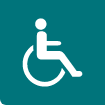We use cookies to improve your experience. By accepting you agree to our cookie policy

There is no specific medicine for Complex Regional Pain Syndrome. Instead medications are taken from other conditions, such as epileptic drugs, anti-depressants, etc. This also includes opiates, which are pain relieving medicines. Doctors will try different medicines that would suit the symptoms you have, as there is a large list of drugs that are available. The medications used for CRPS are taken from the NICE guidelines for Neuropathic Pain.
If you begin a new medication and you become dizzy or disorientated or even nauseous and vomiting, please TELL your doctor immediately as they may have to alter the dose or change the drug altogether.
The longer you are on a certain regime of medicines, the more likely you are to become tolerant and/or dependent. If you feel that you are becoming either tolerant or dependent, TELL your doctor or specialist so they can help you straight away. DO NOT simply stop taking the drugs as you may suffer serious problems. Always get medical advice so they can give you a regime for coming down off the medication.
See Perez, R.S. et al (2010); NICE Guidelines for Neuropathic Pain (2019)
In a study by Hanlan, A.K. et al. (2014) Lidocaine ointment was seen as "…a non-invasive, inexpensive and effective adjunct treatment in the management of pain in a spinal cord injured patient presenting with early CRPS."
By applying the Lidocaine Ointment, the same study said that "The clinically important effect of topical lidocaine for reducing severe allodynia allowed the patient to participate in rehabilitation strategies to further manage the debilitating consequences of her CRPS, including decreased range of motion (ROM) and function. The immediate pain relief from topical lidocaine allowed the patient to tolerate physical therapy sessions directed at her CRPS."

We use cookies to improve your experience. By accepting you agree to our cookie policy
 £
£